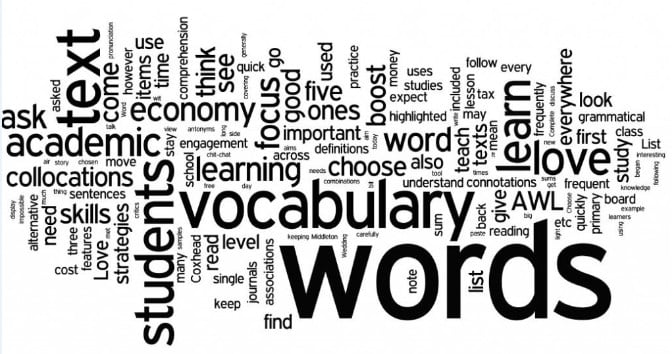Efficient Ways For Studying Vocabulary
Jargon is one of the mainstays of language learning and particularly huge for the high level student. When you know about the essential designs of your objective language, you'll need to begin saying and seeing more words!
1) Compose, Look, Cover, Rehash (WLCR)
This is a definitive work of art. As far as I might be concerned, vocab learning has consistently been a scratch pad and pen type work out. The actual movement of recording something is exceptionally valuable as it fulfills the necessities of haptic students. Take a cushion, define an upward boundary in the center and compose the word on one side in your local/source language and on the opposite side in your objective language. Retain the rundown, at that point cover one side and tick off all that you recollect. At that point rehash.
Supercharging your WLCR
Add another Compose venture for every one of the words you were unable to recall first time round, at that point start once more. Also, rehash. The rundown of words you can't recollect ought to get more modest without fail. Fulfill your aural learning style through the form compose, mutter, cover, rehash - standing up each target language word without fail. Or on the other hand record them all and tune in back to the jargon list a couple of times. Shading code your rundown, for instance to feature various sexes or word types. (Because of David Casey on Facebook for this tip!)
2) Get them all
This method is very appropriate to learning by submersion. You gain new words via conveying a word reference all over (anything electric has them on nowadays) and afterward making a note of new words any place you run over them. These structure your day by day jargon list. Gain proficiency with the words, return to the source, proceed onward to a connected book or video for redundancy. Continue to go until you recollect all (or 80%, 70%...it's your decision!) of the words from your rundown, at that point track down another source. Your memory will fabricate the association among source and vocab, permitting you to recall the word by where you took in it from.
3) Flashcarding
Cheat sheets are extraordinary for students who function admirably with visual signs. You can either make sets consolidating a picture with a word in the objective language, or simply compose the words in source and target language. Various tones prove to be useful here, and numerous online items likewise offer to make life simpler for you (for example Anki and Quizlet).
What makes Flashcarding unique in relation to WLCR is that you can't depend on retaining words by request - they come at you indiscriminately and you should be prepared for anything. By and by, I see this as an obstacle and it's never been my thing. Be that as it may, then again, what better method of getting ready for reality?
4) Work in a Specific situation
Memory research reveals to us that building joins between information assists us with recollecting things and the best approach to sort out that is to put the vocab into utilization. An exemplary memory strategy is associate each word with a solid picture (envision the grouchy ticket assistant heaving and giving you два ьилета). Then again, think of a story that incorporates all your jargon.
5) Stickies All over the place
Tacky notes were made to fill in as updates, so we will utilize them for that! Put logical jargon in essential places, or think of yourself little messages in the objective language. Following seven days of "Guten Abend, Gute Nacht" on your mirror, it may very well sink in.
In the event that you have cheat sheets or favor bigger parts of paper, why not put your bits of paper into an unmistakable plastic envelope and stick them in the shower?
6) Study Phonetics
Numerous words are comprised of parts of different words. So this one requires a touch of study, yet it will make your jargon learning the sharpest it has at any point been. Come out as comfortable with prefixes and additions, word roots and normal wellsprings of target language words. For instance, numerous European languagesare Latin-based and their words change through little additional items. James at EngVid has an incredible method of clarifying the idea through "Jargon Pyramids". The outcomes can be faltering: one basic root can change 10ly, yet you just need to learn half of another word.




